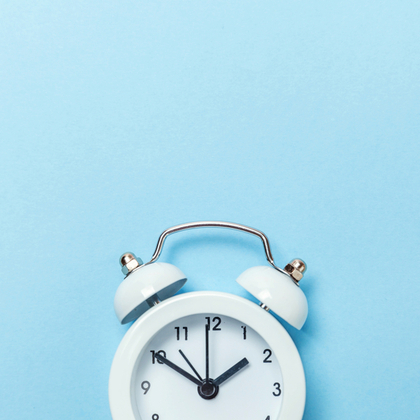
Humans are naturally diurnal creatures designed to function during the day and rest at night. Our internal body clock, also known as circadian rhythm, is governed by light cues: daylight signals activity, while darkness signals rest. That’s why the traditional 9-5 working hours are the most conducive to our sleep-wake cycle.
However, many important industries require us to work throughout the night – healthcare professionals, engineers, pilots, to name but a few. Irregular working schedules can leave shift workers battling against the dials of their biological clock, often leading to shift work sleep disorder.

Fortunately, with a good routine in place, many people can adapt to shift work, still receive a restful night’s sleep, and reduce the impact of night shift sleep disorder.
What are the side effects of working night shifts?
Shift work can have a substantial impact on your body and mind. Working at night throws your circadian rhythm out of whack, which may contribute to poor health outcomes without proper management1:
-
Reduction in quantity and quality of sleep
-
Complaints of lethargy and fatigue
-
Increased likelihood of weight gain
-
Increased risk of cardiovascular issues
-
Increased risk of work-related and vehicular accidents
-
Increase risk of gastrointestinal problems
-
Difficulty managing personal relationships
What is shift work sleep disorder (SWSD)?
Shift work disorder is a circadian rhythm sleep disorder commonly affecting people who work outside traditional 9-5 hours. It occurs when your body can’t entirely adjust to your irregular shift patterns.
Night shift sleep disorder can lead to chronic sleep deprivation, in which you’re unable to regain the sleep you've lost, preventing you from feeling rested and refuelled.
Can working night shifts cause insomnia?
The two primary symptoms of shift work disorder are excessive daytime sleepiness and insomnia2.
Insomnia
People with shift work sleep disorders often struggle to fall asleep or maintain sleep. The average night shift worker loses one to four hours of sleep per night.
Excessive daytime sleepiness
Night shift work can impair daytime functioning, leading to fatigue and reduced productivity at work. These effects may decrease performance capacity and increase the risk of accidents or injury. It’s widely understood that several high profile disasters occurred as a result of SWSD, such as Chernobyl in 19863.
How can I sleep better after a night shift?
Fortunately, there are many ways you can reduce the effects of night shift work and still achieve a night of restful sleep.
Make your bedroom conducive to sleep
Creating a sleep-friendly environment is essential for shift workers, especially if you’re sleeping during the daytime. Darkness is especially key because it signals to your brain that it’s time to rest and triggers the production of melatonin, your sleep hormone. Installing blackout blinds and using an eye mask are helpful ways to block out light.
To ensure your bedroom is quiet, try to make it as soundproof as possible. It might be an idea to invest in quality earplugs. You may also want to discuss your sleep schedule with your family or flatmates so you can rest without interruptions.
Finally, your bedroom needs to be temperate. Ensure that it’s around 16-18 degrees, which is optimal for sleeping.
Try light therapy
Since the human body takes most of its sleeping signals from light and darkness – light cues activity; darkness cues rest – light therapy can be a powerful tool to help you adjust to working unconventional hours4. Timed exposure to a lightbox, which typically provides 10,000 lux (lux is a measure of light intensity), may help recalibrate your circadian rhythm.
That being said, you don’t necessarily need to invest in a lightbox to acclimatise your body to your new work schedule. After sleeping and before starting a night shift, try turning on all the bright lights in your home to wake up your body and brain. When you arrive home from work in broad daylight, consider wearing a pair of blue-light-blocking glasses or sunglasses, and draw all the curtains in your house, so that your living and sleeping environment mirrors nighttime.
Adjust your mealtimes
Mealtimes also help regulate your circadian rhythm. Regular meals wake your biological clock, prompting it to commence the day, even if your ‘day’ is at night. As such, you may wish to change to eating schedule to accommodate your irregular working hours, regardless of whether this means your meals fall at awkward times.
Try to eat three protein-rich meals a day, along with a handful of healthy snacks, to provide your body with enough energy when it’s awake.
Avoid consuming highly refined carbohydrates and sugary foods, too. These quick fixes will only cause your energy levels to spike and then drop. If you find that you’re hungry after night shift work, prepare yourself a light, healthy snack to avoid disrupting your sleep. Most importantly, make a conscious effort to reduce your caffeine consumption at least eight hours before sleeping.
For more information on sleep and nutrition, see our guide on 6 foods to help you sleep.
Try relaxation techniques
Since sleeplessness and anxiety can be mutually reinforcing, you may want to try a range of mindfulness and relaxation techniques to help quiet your mind and calm your body before sleeping. Many people find deep breathing, meditation, visualisation, and tension release exercises helpful.
If you struggle to switch off and wind down, natural supplements such as Valerian Root, Theanine & Lemon balm, Magnesium, and Tart Cherry Juice can also be useful additions.
Exercise more
It’s doubtful that you’ll find time to head to the gym after night shift work. But it can be helpful to squeeze in a few workouts around your shifts – be it a long walk on your day off or a light jog before you start work.
Regular movement doesn’t just keep your body fit and healthy; it’s vitally important for your mental and emotional wellbeing, as well as your sleep-wake cycle.
Is shift work sleep disorder permanent?
Not everyone who does night shift work will suffer from SWSD. Many people will struggle to adapt to their new schedule initially, but that’s normal.
If, however, you still find it difficult to fall asleep after several weeks or feel tired after clocking 7-8 hours, you may have shift work sleep disorder. The symptoms of night shift sleep disorder usually persist as long as you keep the same shift work schedule.
Shift work sleep disorder can be a frustrating and exasperating condition. But we hope the simple tips above can make it a little easier to navigate. If, however, your night shift work disorder is becoming unmanageable, always chat to your GP.
To discover even more articles on how to improve your sleep hygiene, feel free to visit our dedicated sleep health hub.
References:
- Harrington. J. (2011). Health effects of shift work and extended hours of work. Occupational and Environmental Medicine. 58(1), 68-72.
- Jehan. H.R., Zizi. F., Pandi-Perumal. S.R., Myers. A.K., Auguste. E., Jean-Louis. G., McFarlane. S.I. (2017). Shift Work and Sleep: Medical Implications and Management. Sleep medicine and disorders: international journal. 1(2), 00008.?
- Åkerstedt, T., & Wright, Jr., K. P. (2010). Sleep Loss and Fatigue in Shift Work and Shift Work Disorder. Sleep Medicine Clinics, 4(2), 257–271.
- Bovin. D. & James. F. (2005). Light Treatment and Circadian Adaptation to Shift Work. Industrial Health. 43(1), 34-48.
Related Posts

Olivia
Olivia Salter has always been an avid health nut. After graduating from the University of Bristol, she began working for a nutritional consultancy where she discovered her passion for all things wellness-related. There, she executed much of the company’s content marketing strategy and found her niche in health writing, publishing articles in Women’s Health, Mind Body Green, Thrive and Psychologies.
View More



